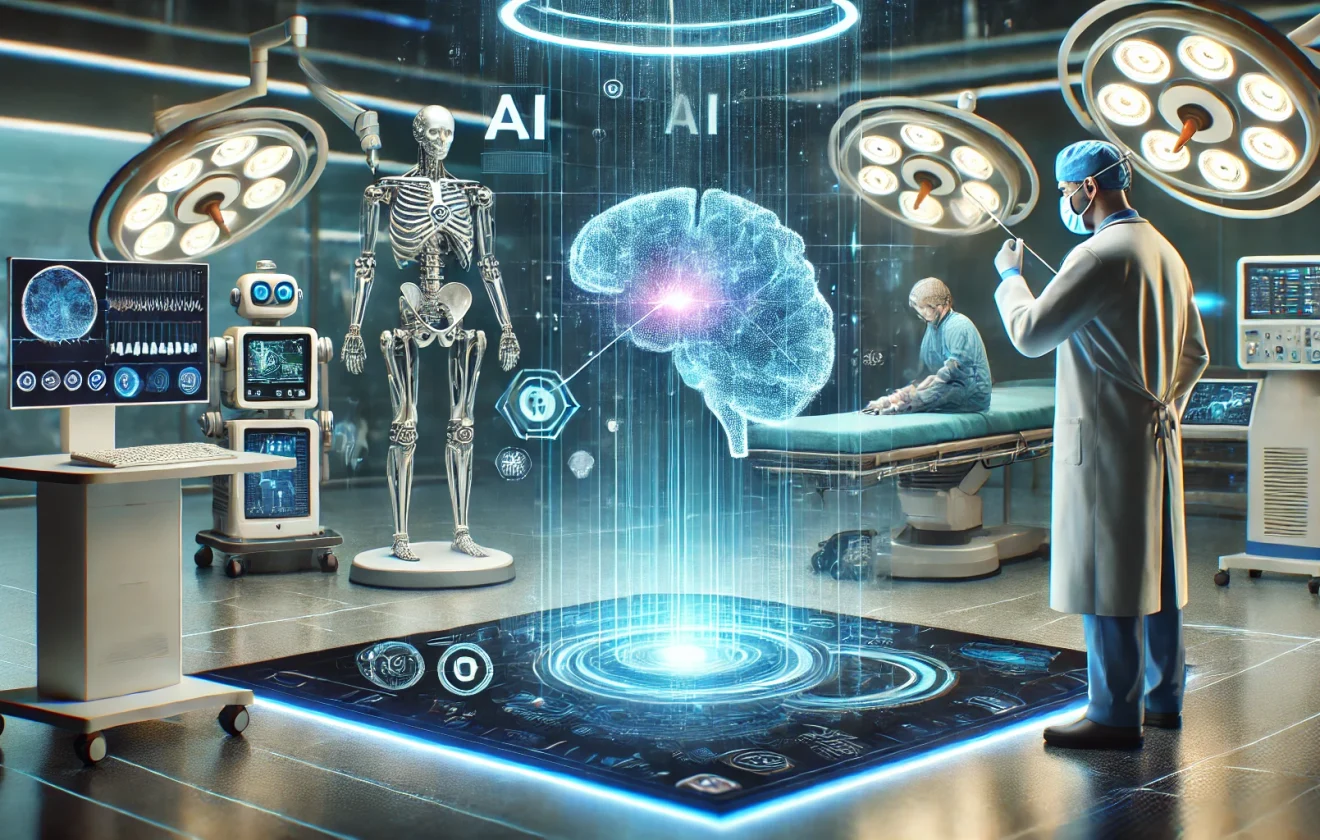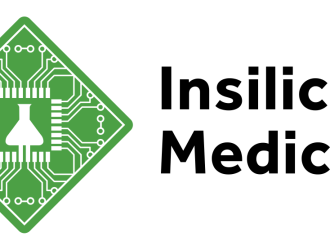Revolutionizing Healthcare with AI: Diagnosis and Treatment Solutions
Artificial Intelligence (AI) is at the forefront of healthcare innovation, transforming how diseases are diagnosed and treated. With advancements in machine learning, medical imaging, and...

- <strong>Introduction to AI in Healthcare</strong>
- <strong>The Core Technologies Behind AI in Healthcare</strong>
- <strong>AI-Driven Diagnosis: Transforming Accuracy</strong>
- <strong>AI in Personalized Treatment Plans</strong>
- <strong>AI and Medical Imaging Innovations</strong>
- <strong>Predictive Analytics for Preventive Care</strong>
- <strong>AI in Drug Discovery and Development</strong>
- <strong>AI-Powered Robotics in Surgery</strong>
- <strong>Chatbots and Virtual Health Assistants</strong>
- <strong>Ethical Implications of AI in Healthcare</strong>
- <strong>Challenges Facing AI Implementation in Healthcare</strong>
- <strong>Success Stories of AI in Healthcare</strong>
- <strong>Future Prospects of AI in Healthcare</strong>
- <strong>Comparing AI in Healthcare Across Regions</strong>
- <strong>Practical Steps for Healthcare Providers Adopting AI</strong>
- <strong>FAQs About AI in Healthcare</strong>
- <strong>Conclusion: Transforming Healthcare with AI</strong>
- 1
What is AI in Healthcare?
Artificial Intelligence (AI) refers to the use of machines and algorithms to mimic human intelligence, enabling tasks like diagnosis, treatment planning, and medical research to be performed more efficiently and accurately.
- 2
Top Benefits of AI in Healthcare
Early and accurate disease diagnosis Personalized treatment plans based on genetics Faster drug discovery and development Enhanced precision in surgeries Improved patient monitoring through wearables
- 3
AI Milestone in Medical Imaging
AI systems like Google's DeepMind achieved a 94.5% accuracy rate in detecting breast cancer, outperforming human radiologists in certain areas.
- IBM Watson Health
Services: AI-powered analytics for healthcare data, cancer diagnostics, and personalized treatment recommendations.
AI Applications: Processes electronic health records (EHR) and medical literature to provide doctors with actionable insights for diagnosis and treatment.
Highlight: Assists in oncology by delivering tailored treatment options to cancer patients. - PathAI
- Insilico Medicine
Artificial Intelligence (AI) is at the forefront of healthcare innovation, transforming how diseases are diagnosed and treated. With advancements in machine learning, medical imaging, and predictive analytics, AI is enabling precise, personalized, and efficient care. This article delves deep into how AI is revolutionizing healthcare by enhancing diagnostic accuracy, optimizing treatment strategies, and paving the way for a healthier future.
Introduction to AI in Healthcare#
Artificial Intelligence (AI) has become a cornerstone of modern healthcare, offering solutions that were unimaginable just a few decades ago. AI systems can mimic human intelligence, processing vast datasets to derive meaningful insights. In medicine, these capabilities translate into faster, more accurate diagnoses and personalized treatments tailored to individual patient needs.
The Journey of AI in Healthcare#
The use of AI in healthcare has evolved significantly. In the 1960s, the earliest AI systems, such as MYCIN, were designed to assist in medical decision-making. Today, AI has expanded its reach to encompass imaging, genomics, and even robotic surgeries.
The Impact of AI on Diagnosis and Treatment#
AI is fundamentally reshaping the medical field by automating complex tasks, identifying patterns in patient data, and predicting health outcomes. The integration of AI not only reduces human error but also allows healthcare providers to focus on patient care.
The Core Technologies Behind AI in Healthcare#
At the heart of AI’s transformative power are several groundbreaking technologies:
- Machine Learning (ML): Algorithms that learn from data to predict outcomes, commonly used in diagnostics and patient monitoring.
- Natural Language Processing (NLP): Helps AI systems interpret and respond to clinical notes, electronic health records, and patient queries.
- Computer Vision: Enables AI to analyze medical images, detecting abnormalities with unparalleled precision.
These technologies form the backbone of AI applications in healthcare, driving advancements in various medical fields.
AI-Driven Diagnosis: Transforming Accuracy#
One of AI’s most significant contributions is its ability to diagnose diseases early and accurately.
Early Disease Detection#
AI algorithms can analyze subtle patterns in data that may elude human experts. For example:
- AI-powered systems detect cancer in its nascent stages using imaging scans.
- Wearable devices leverage AI to monitor vital signs, alerting users to potential health issues.
Real-Time Diagnostics#
AI’s real-time capabilities are invaluable in emergencies, enabling rapid diagnostics for conditions like strokes or heart attacks, where every second counts.
Case Study: AI in Diagnosing Rare Diseases#
AI platforms like DeepMind’s AlphaFold are decoding protein structures, providing insights into rare genetic disorders. This breakthrough is expediting research and treatment for conditions previously deemed untreatable.
AI in Personalized Treatment Plans#
AI excels in crafting treatment plans tailored to each patient’s unique profile.
Precision Medicine#
By analyzing genetic data, AI can recommend therapies that align with an individual’s genetic makeup. For example, AI identifies biomarkers to customize cancer treatments, improving success rates.
Genomics Integration#
AI tools, such as IBM Watson Health, sift through millions of research papers and clinical trials to suggest personalized therapies.
AI and Medical Imaging Innovations#
Medical imaging is one of the areas where AI has made the most dramatic impact, enhancing accuracy and efficiency in diagnostics.
Revolutionizing Radiology with AI#
Radiology has traditionally been a labor-intensive field requiring expertise to interpret complex images. AI systems like Aidoc and Zebra Medical Vision analyze medical images, identifying abnormalities such as fractures, tumors, or aneurysms with remarkable precision.
Impact on Various Imaging Modalities#
- CT Scans: AI algorithms speed up image processing, ensuring faster diagnosis of conditions like internal bleeding or brain injuries.
- MRI: AI reduces the time required for MRI scans by optimizing imaging sequences.
- X-Rays: AI detects conditions like pneumonia, fractures, or lung cancer in chest X-rays with a higher accuracy than traditional methods.
Reducing Errors and Improving Speed#
By minimizing human error and automating routine tasks, AI allows radiologists to focus on complex cases, reducing burnout while improving patient outcomes.
Predictive Analytics for Preventive Care#
AI’s predictive capabilities are paving the way for preventive healthcare by identifying risks before they become critical.
Risk Stratification#
AI algorithms assess patient data to predict the likelihood of diseases such as diabetes, cardiovascular conditions, and cancer. For example, systems like Epic’s Health Risk Analytics identify high-risk patients for early interventions.
Chronic Disease Management#
AI-powered tools monitor patients with chronic conditions like hypertension or diabetes, offering real-time insights and suggesting lifestyle changes to prevent complications.
Predicting Patient Outcomes#
AI can analyze hospital records to predict outcomes like recovery times, readmissions, or mortality risks. This empowers healthcare providers to allocate resources more effectively.
AI in Drug Discovery and Development#
The process of discovering and developing new drugs has been revolutionized by AI, making it faster, cheaper, and more efficient.
Accelerating Drug Development#
Traditional drug discovery can take over a decade and cost billions of dollars. AI platforms like Insilico Medicine use machine learning to identify potential drug candidates in a fraction of the time.
Virtual Clinical Trials#
AI reduces the need for physical trials by simulating drug interactions within virtual environments, cutting costs and improving trial success rates.
Molecular Analysis#
AI models analyze molecular structures, identifying compounds likely to have therapeutic effects while avoiding harmful side effects.
AI-Powered Robotics in Surgery#
AI-driven robotics are redefining surgical procedures, making them safer and more precise.
Robotic Surgical Systems#
Systems like da Vinci Surgical System incorporate AI to assist surgeons in performing minimally invasive procedures. These systems improve precision, reduce incision sizes, and lead to quicker patient recovery times.
Benefits of AI in Surgery#
- Enhanced accuracy through real-time imaging and data analysis.
- Reduction in surgical complications and infection risks.
- Improved patient satisfaction and reduced hospital stays.
Real-World Applications#
AI-driven robotic systems are already being used in complex surgeries like heart valve repair, organ transplants, and orthopedic procedures.
Chatbots and Virtual Health Assistants#
AI-powered chatbots are transforming patient engagement by providing round-the-clock assistance.
Role in Patient Communication#
Chatbots like HealthTap and Babylon Health answer patient queries, schedule appointments, and provide basic health advice, easing the workload on healthcare staff.
Mental Health Support#
AI platforms like Woebot and Wysa offer therapy sessions, mood tracking, and coping strategies for individuals dealing with anxiety, depression, and stress.
Enhancing Accessibility#
Virtual assistants bridge gaps in healthcare delivery, particularly in remote or underserved areas.
Ethical Implications of AI in Healthcare#
The rapid adoption of AI raises critical ethical questions that must be addressed for its sustainable integration into healthcare.
Data Privacy Concerns#
AI relies on vast amounts of patient data, raising concerns about data breaches and misuse. Adhering to regulations like GDPR and HIPAA is essential to protect patient information.
Bias in AI Models#
AI models can inherit biases from training data, leading to unequal treatment outcomes. Ensuring diverse datasets and transparency in AI algorithms is crucial to fairness.
Regulatory Frameworks#
Governments and organizations are developing standards to regulate AI’s use in healthcare, ensuring safety and accountability.
Challenges Facing AI Implementation in Healthcare#
Despite its potential, AI adoption in healthcare faces several hurdles.
Technological Barriers#
Many healthcare facilities lack the infrastructure to support AI systems, such as advanced computing resources or reliable internet connectivity.
Resistance from Healthcare Professionals#
Some professionals are hesitant to adopt AI due to fears of job displacement or skepticism about AI’s reliability.
High Costs#
Implementing AI technology requires significant investment in software, hardware, and staff training, which can be a barrier for smaller healthcare providers.
Success Stories of AI in Healthcare#
AI is already making a difference, as evidenced by numerous success stories.
Improved Diagnostics#
Google’s AI system achieved a 94.5% accuracy rate in detecting breast cancer, outperforming human radiologists in some cases.
Optimized Treatment Plans#
AI tools have successfully reduced hospital readmission rates by recommending tailored treatment plans based on predictive analytics.
Enhanced Patient Outcomes#
Patients receiving AI-supported care report higher satisfaction levels and quicker recovery times, demonstrating AI’s value in real-world settings.
Future Prospects of AI in Healthcare#
The future of AI in healthcare is bright, with numerous exciting developments on the horizon.
Wearable Technology and IoT Integration#
Devices like smartwatches and fitness trackers equipped with AI are becoming essential for real-time health monitoring.
Global Health Challenges#
AI could address global issues like healthcare access by providing scalable solutions for underserved populations.
Comparing AI in Healthcare Across Regions#
The adoption of AI varies across the globe due to differences in infrastructure, policy, and cultural acceptance.
Developed Countries#
Regions like North America and Europe lead in AI implementation, benefiting from advanced infrastructure and supportive policies.
Developing Countries#
Emerging economies are catching up by using AI to bridge gaps in healthcare access, particularly in rural areas.
Practical Steps for Healthcare Providers Adopting AI#
Healthcare providers can take several steps to successfully integrate AI into their workflows:
- Build AI-Ready Infrastructure: Invest in high-performance computing and secure data storage systems.
- Train Professionals: Offer training programs to help staff understand and utilize AI tools effectively.
- Collaborate with AI Startups: Partnering with tech companies ensures access to cutting-edge solutions tailored to specific needs.
FAQs About AI in Healthcare#
Q1: What are the main benefits of AI in healthcare?
AI enhances diagnostic accuracy, reduces errors, and personalizes treatment plans.
Q2: How does AI improve diagnosis accuracy?
By analyzing vast datasets and identifying patterns, AI detects diseases earlier and with greater precision.
Q3: What are the limitations of AI in treatment solutions?
Challenges include data privacy concerns, biases in AI models, and high implementation costs.
Q4: Is AI replacing doctors?
No, AI is a tool to augment doctors’ capabilities, not replace them.
Q5: How secure is patient data when using AI?
Patient data is secure when systems comply with regulations like GDPR and HIPAA.
Q6: What are the costs of implementing AI in healthcare?
Costs vary but include investments in technology, training, and maintenance.
Conclusion: Transforming Healthcare with AI#
AI is revolutionizing healthcare by improving diagnostic accuracy, personalizing treatment, and enhancing operational efficiency. While challenges remain, the potential for AI to save lives and reduce healthcare disparities makes it an indispensable tool for the future.

















The AI regulation and compliance section is spot on. With the rise of AI adoption, ethical considerations will be crucial.…